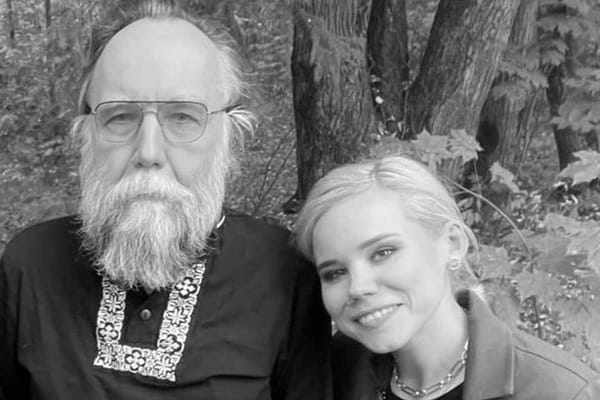The stabbing of Salman Rushdie by a Muslim fanatic on Aug. 12 reminded the world that despite appearances to the contrary, intellectuals aren’t immune to the consequences of their ideas about politics and religion. A free society as we have come to understand it, however, aspires to nullify the mortal risk, believing that nobody should be attacked or killed over concepts that are essentially contested.
This ideal of a free society is hard to maintain. The difficulty is at the heart of the political problem in a liberal democracy. One way to protect against dangerous thinking is no longer to permit dangerous thoughts, curtailing the freedom that such a society is meant to uphold. That is akin to putting out the fire of faction by cutting off the oxygen of freedom and suffocating oneself, as the Founders knew. But permitting unorthodox thoughts and then punishing them for unorthodoxy is hardly a better solution.
What is to be done? If, for example, you believe children shouldn’t be transitioned without a parent’s permission before a certain age and someone else argues otherwise, your dispute isn’t only about abstract ideas. It is about real families, real children’s lives, and the real well-being of society. There is something at stake. Ideas permeate the flesh-and-blood world, through law and other mediums. How do we give them their due? In the case of Rushdie, shouldn’t a free society be unanimous in asserting that there is no justification for the attempted murder of a writer?
What about the terrible case of the infamous Russian thinker Alexander Dugin, called “Putin’s Brain” by Foreign Affairs for his ideological influence in shaping the project of a new Russian imperialism? On Saturday, there was an apparent attack against him in Moscow that led to the death of his daughter, Darya, herself a social and political commentator. While the two of them attended the “Tradition” festival of music and literature, someone planted a bomb in his car. Alexander took a different vehicle home from the festival. Darya drove his car. It seems he was the intended victim; their enemies are glad at least one of them is dead.
Both father and daughter are leading proponents of a political theory that is anti-liberal, anti-communist, anti-fascist, anti-globalist, anti-Atlanticist, anti-woke, pro-Eurasian, pro-multipolar, pro-traditionalist, pro-Russian. Both had spoken in favor of Russia’s war against Ukraine as part of a great clash of civilizations, ideologies, and geopolitical forces. Alexander was particularly adamant during the 2014 hostilities that Putin should do more to punish the anti-Russian Ukrainian regime by fighting for the establishment of Novorossiya in the East. In their view, a Westernized Ukraine that joins NATO poses an existential threat to Russian civilization. In a 2021 speech, Putin likened the danger to the use of a weapon of mass destruction against Russia.
“Many people suggested that Dugin got what he deserved.”
Pro-Western Ukrainians fighting for national independence thus had reasons not to like the Dugins’ ideas. So did Russian anti-Eurasianists who defended another vision of Russia’s future. It is no surprise, then, that her murder and his near death were celebrated online as the welcome fate of fascist neo-Nazis. “He who sows the wind shall reap the whirlwind,” tweeted Julia Ioffe. Many people suggested that Dugin got what he deserved, just as you could find deranged voices praising the attack on Rushdie, the infidel, alongside an eerie silence from some who in failing to denounce the attack almost seemed to condone it.
These two cases raise hard questions for Western intellectuals. The Western powers have aligned with Ukraine against Russia in response to Putin’s invasion. Ukraine represents freedom and democracy; Russia, authoritarianism and repression. Zelensky is a hero; Putin, the devil. The significance of this geopolitical alignment on the intellectual plane is that commentators who share any part of the “Russian” position or oppose any part of the “Ukrainian” or “Western” one are treated as practically traitorous, not to say Satanic. Almost anything goes in shutting them up. Weighed on the scales of justice, nothing compares to the crime of supporting the new Hitler.
Rushdie is a slightly different matter. He at least stands for a liberal principle of freedom of speech, however problematically. But even in his case, the possibility of violence could long be played down or even tacitly accepted. For by insulting Islam, he had violated the liberal imperative of inclusion. Threats against his life, like threats against Dugin’s, could be accepted far more readily than threats against the life of an impeccably progressive intellectual. Notwithstanding the conceit of liberal neutrality, the liberal has more tolerance for some forms of political violence than others.
Alexander and Darya Dugin have a vision of the world order. It is impossible to think about politics and not to incline towards one such vision or another, whether it is nationalism, internationalism, imperialism, anarchism, republicanism, or whatever you please. And these visions have consequences when they are brought into being. But we should resist in any way accepting, justifying, excusing, or celebrating physical violence against thinkers with whom we disagree, however viscerally. The world is darkening. Murdering intellectuals does not bring light. It doesn’t even kill their ideas.
